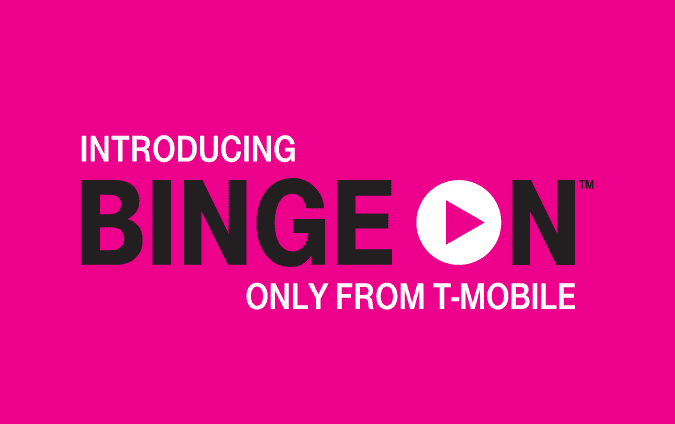Google’s YouTube, Play Movies and TV are now available through T-Mobile’s Binge On video streaming service that lets users watch programs on their mobile devices without affecting their monthly data limits. Google had voiced concern that the service’s streaming optimization appeared to involve throttling, i.e., slowing down the speed of network data delivery rates across the board.
In the four months since T-Mobile introduced the Binge On option, Google representatives have met with the company to discuss those concerns, and T-Mobile has made changes to its program in response. Those changes, “can help ensure that the program works well for all users and the entire video ecosystem,” Google noted today in a post on its Public Policy Blog.
Because of those changes, Google said it will begin participating in the T-Mobile program today. In a separate announcement, T-Mobile said it now provides more than 50 video services — including other new additions like Discovery GO, Fox Business and KlowdTV — through Binge On.
Changes Include Easier On/Off
“The initial implementation of the Binge On program raised questions from both users and video services, including YouTube,” Christian Kleinerman, YouTube’s product management director, said today in the Google blog post. “Over the last several months, we raised these concerns with T-Mobile, and they’ve heard us and others who provided similar feedback.”
Kleinerman said T-Mobile has responded by clarifying for users what “optimization” means and making it easier for users to turn Binge On off and on. He added that the company also enables any video service provider that meets its traffic identification requirements to opt out of Binge On so their video streams are no longer modified.
Following its discussions with other companies, T-Mobile will now also “work with video services that wish to optimize their own streams, using an average data rate limit,” Kleinerman said. “This allows video services to offer users an improved video experience, even at lower data rates, by taking advantage of innovations such as video compression technology, benefiting T-Mobile, their customers, and video providers.”
Viewing Hours, Consumption Are Up
As of today, Binge On service provider partners represent about 70 percent of all the video content viewed by customers on mobile devices every month, T-Mobile said. Video streaming on such devices has also increased dramatically since the program was introduced, according to the company.
T-Mobile said one partner has seen its number of active viewers increase by 90 percent, with viewing times nearly tripling among customers who otherwise faced high-speed data streaming limits. In general, customers are now streaming content for more than twice as long every day, with total Binge On traffic now exceeding 57 million GB, the company added.
Data streaming programs like T-Mobile’s — also available from AT&T and Comcast, among others — have also drawn scrutiny from the Federal Communications Commission, which has asked all three companies to explain how those services fit within the agency’s goal of maintaining a “free and open Internet.”
In a related court case, the U.S. District Court for the Northern District of California late last month sent a customer’s challenge of AT&T’s unlimited data traffic management practices to arbitration rather than allowing it to go forward as a class action lawsuit.





![[Video] Reimagined for Orchestra, ‘Over the Horizon 2026’](https://loginby.com/itnews/wp-content/uploads/2026/02/Video-Reimagined-for-Orchestra-‘Over-the-Horizon-2026’-100x75.jpg)

